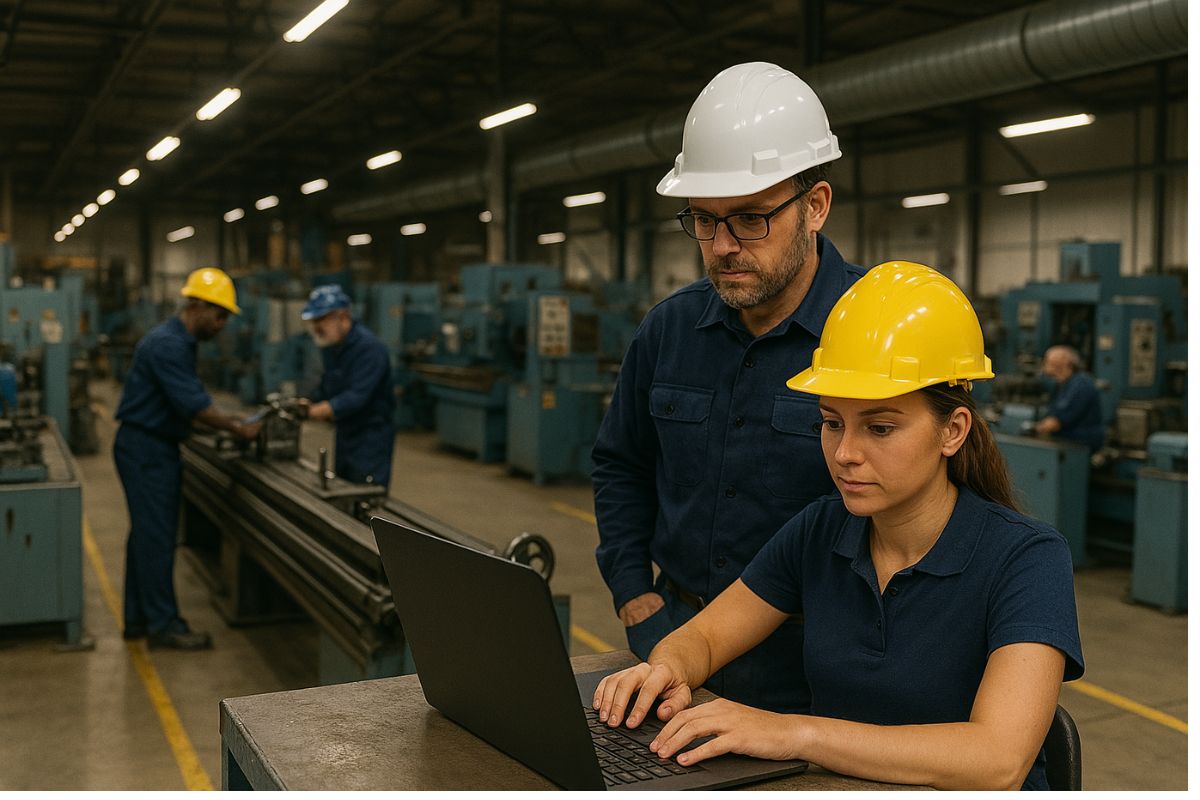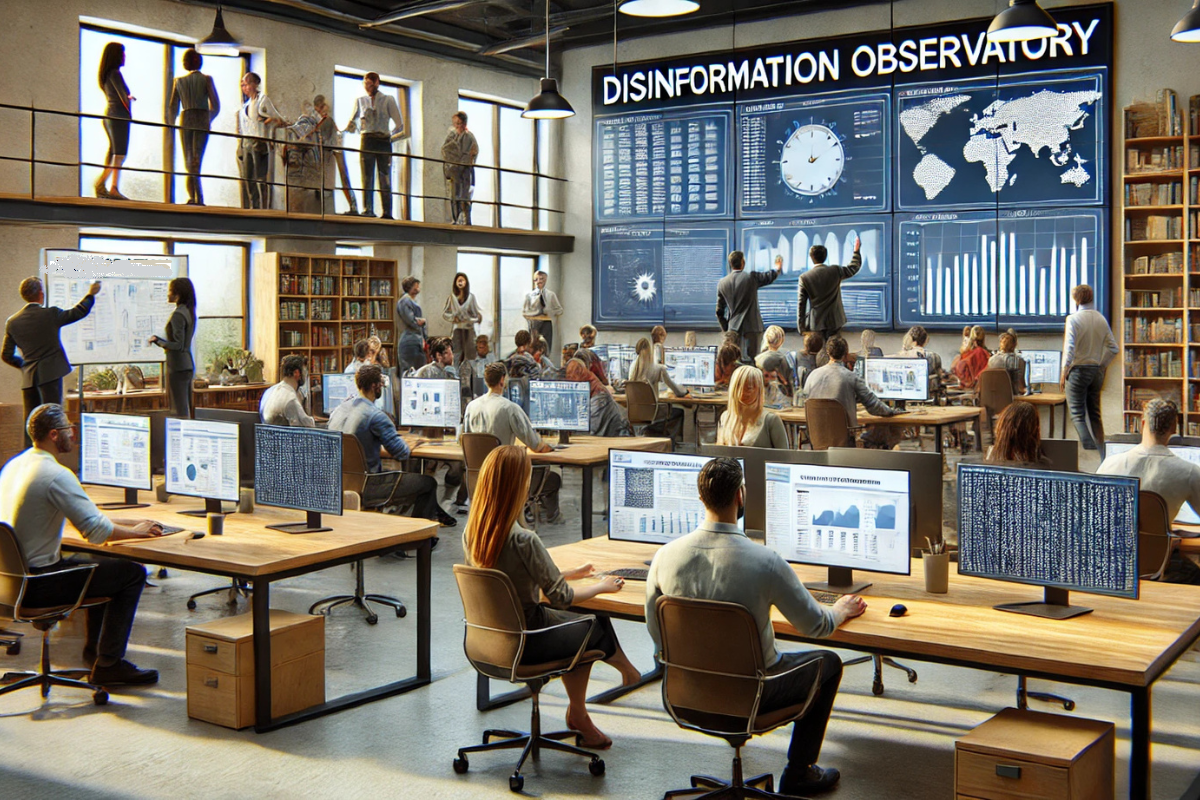2025 is set to be a year of explosive growth for manufacturing, fueled by cutting-edge technologies, a surging sustainability movement, and rapidly changing market expectations. Building on last year’s insights, this year’s trends highlight the need for adaptability and innovation. As an Exclusive Distributor of Epicor Kinetic Solutions in Greece and Cyprus, we believe that these trends present opportunities to empower manufacturers with tools to excel in a rapidly changing environment.
Here are the top manufacturing trends to watch in 2025:

Advanced Automation and Robotics
The adoption of sophisticated automation and robotics continues to accelerate, enhancing production efficiency and precision. Automated systems are taking over repetitive tasks, allowing human workers to focus on more complex and strategic activities. This shift not only boosts productivity but also reduces operational costs.
How does an ERP support this trend? A modern ERP system can integrate with automation technologies, providing real-time data and analytics to monitor and optimize robotic performance. This integration ensures that automated processes align with overall business objectives, facilitating smoother operations.

Artificial Intelligence and Machine Learning
Artificial Intelligence (AI) and Machine Learning (ML) are becoming integral to manufacturing processes. These technologies enable predictive maintenance, quality control, and demand forecasting, leading to reduced downtime and improved product quality. However, the industry faces challenges in AI adoption, including data integration and workforce readiness.
How does an ERP support this trend? By incorporating AI and ML capabilities, ERP systems allow manufacturers to leverage predictive analytics for better decision-making. The ability to process and analyze large datasets helps in identifying patterns and trends, facilitating proactive management strategies.

Internet of Things (IoT) Connectivity
Internet of Things (IoT) is revolutionizing manufacturing by connecting machines, devices, and sensors, creating a network of intelligent systems. This connectivity enables real-time monitoring and data collection, leading to improved efficiency and reduced waste.
How does an ERP support this trend? ERP systems with robust integration capabilities can connect with various IoT devices, providing a unified platform for data analysis and operational control. This integration enhances visibility across the production line, enabling timely interventions and process optimizations.

Sustainable Manufacturing Practices
Sustainability is no longer optional; it’s a necessity. Manufacturers are adopting eco-friendly practices to meet regulatory requirements and consumer expectations. This includes reducing carbon footprints, minimizing waste, and utilizing renewable energy sources.
How does an ERP support this trend? ERP solutions can assist in tracking and managing resources efficiently, supporting sustainability goals. These systems provide tools for monitoring energy consumption, waste generation, and material usage, helping manufacturers implement and maintain green practices.

Supply Chain Resilience
Recent global disruptions have highlighted the importance of a resilient supply chain. Manufacturers are focusing on diversifying suppliers, increasing transparency, and utilizing technology to anticipate and mitigate risks.
How does an ERP support this trend? Advanced ERP systems offer comprehensive supply chain management features, enabling manufacturers to monitor supplier performance, manage inventory levels, and respond swiftly to disruptions. Analytics capabilities provide insights into potential vulnerabilities, allowing for proactive risk management.

Customization and Personalization
Consumer demand for personalized products is driving manufacturers to adopt more flexible production methods. Mass customization requires agile systems capable of handling complex configurations without compromising efficiency.
How does an ERP support this trend? ERP tools with configurator capabilities allow manufacturers to manage customized orders efficiently. These systems support complex product configurations, pricing, and order processing, ensuring personalized products are delivered accurately and on time.

Workforce Transformation
As technology evolves, so does the workforce. There’s a growing need for employees skilled in digital tools and data analysis. Continuous learning and development are becoming integral to manufacturing roles.
How does an ERP support this trend? User-friendly ERP systems can facilitate workforce adaptation to new technologies. Intuitive designs and training modules reduce the learning curve, empowering employees to leverage their full capabilities effectively.

Cybersecurity Measures
With increased connectivity comes heightened cybersecurity risks. Protecting sensitive data and ensuring the integrity of manufacturing processes are paramount.
How does an ERP support this trend? Modern ERP systems employ robust security protocols, including multi-factor authentication and data encryption, to safeguard against cyber threats. Regular updates and compliance with international security standards ensure resilience against emerging risks.
Conclusion
Manufacturing in 2025 is all about embracing innovation, fostering sustainability, and building resilience. By staying ahead of these trends and leveraging advanced ERP solutions, manufacturers can unlock new opportunities and drive long-term growth.
References:
The Future Of Manufacturing: Technology Trends For 2025 And Beyond





